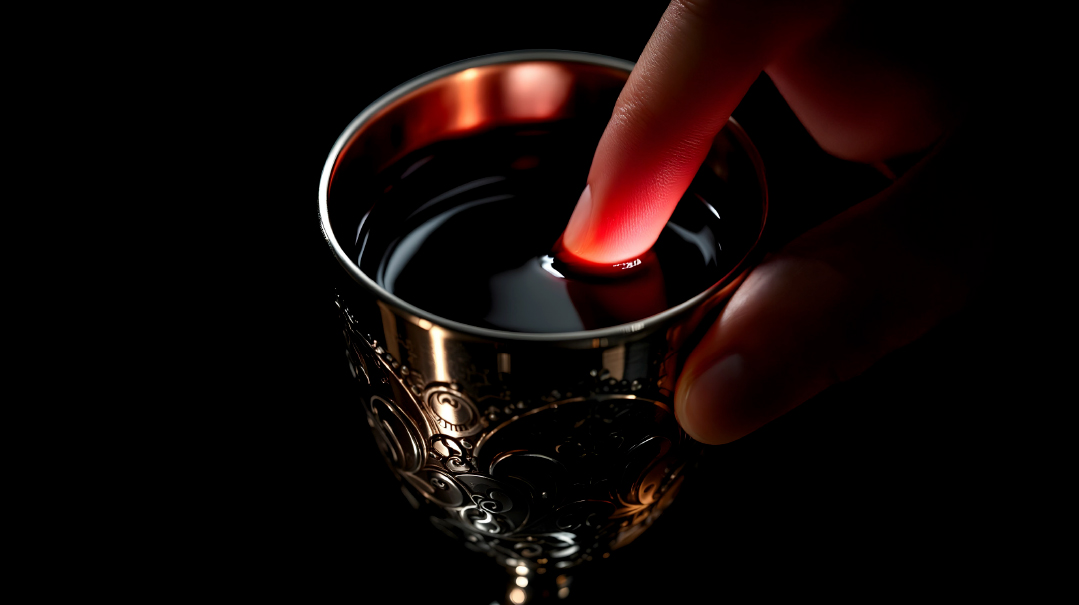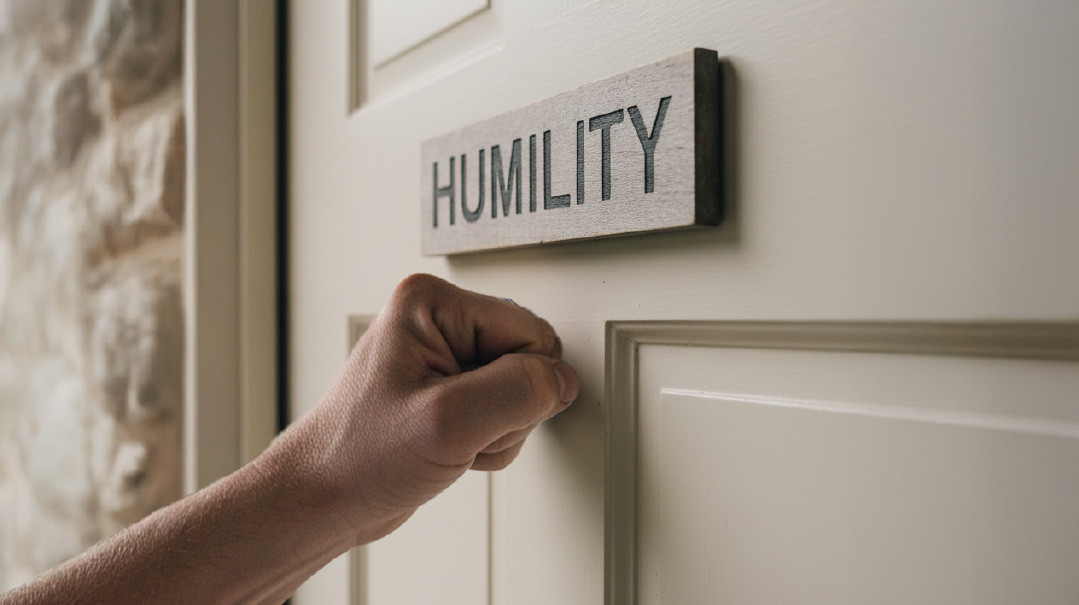Ten Drops of Wine
| March 25, 2025Was I violating the meaning of the injunction to dip my finger in the second cup of wine ten times at the Seder?

IN a few weeks, we shall sit at the Seder and come to the recitation of the Ten Plagues. The custom is to dip a finger into the second cup of wine and let a drop fall away for each of the plagues. The idea is that, despite the Egyptian enslavement and cruelty, we nonetheless mourn the death of our oppressors and the ten plagues that ultimately brought them to that fate. Even the taskmasters were human beings.
From my earliest Seder memories until recently, I performed the ritual without a second thought, and I noticed that many around me commented on the humanity of the Jewish approach.
As I read more and more Holocaust history and Holocaust memoirs, sharp questions arose. I read about Nazis who grabbed Jewish children and slaughtered them in front of their mothers. I read about Nazis who dropped pellets of poison gas into chambers that murdered hundreds of innocent Jews in ghastly fashion — and then did the same thing, over and over. I read about the cruelty of Nazis and their collaborators in Jewish ghettos, killing Jews at random, or beating them to a pulp. Most of the Nazis and their collaborators got away with it, but some were caught and later tried and punished. And some were killed outright during the war.
I asked myself, “Would I subtract a drop of wine in mourning for a single one of these Nazis who was killed?” Could I muster an ounce of compassion for the death of a Nazi?
I could not. Was I, then, violating the meaning of the injunction to dip my finger in the second cup of wine ten times at the Seder? Was I emotionally or spiritually deficient?
One possible resolution of my dilemma I rejected outright — namely, that the Egyptian oppression was long, long ago, millennia before any living Jew’s memory, while the Nazi brutality is fresh. Even today, a few Holocaust survivors are still among us, and Holocaust education is, too. There are hundreds of memoirs by survivors in dozens of languages.
None of this can justify taking an approach to the ancient Egyptian brutality that is radically different from the approach to the brutality of the Nazis (and their willing collaborators). Cruelty is cruelty. Hatred is hatred. Evil is evil. If I cannot see myself dropping wine for Nazis, how could I do it for Egyptians?
My dilemma has only sharpened since October 7, 2023. The horrendous inhumanity and cruelty of Hamas needs no recounting here. But as if that were not enough, we have now been treated to the spectacle of caskets of murdered Jewish children, paraded as if they were trophies, as one person put it. We have seen Palestinian children brought to these hostage hand-over “ceremonies,” straining to get a peek at the “entertainment” — of the ineffably degrading treatment of innocent, brutalized Jews.
I am reminded of the medieval auto-da-fé, in which the populace dressed up in their Sunday best to watch a believing Jew burned to death. So no, the inhumanity of Hamas is not history for me. This is not like reading Holocaust books. This is in front of my eyes; this is in front of the eyes of all of us.
Can I possibly muster the slightest empathy for the demise of a Hamas terrorist? I cannot.
Where does this leave me with the wine-drop ritual at the recitation of the Ten Plagues at the Seder?
It leaves me with this: I am mourning, yes. As I extract each drop, for each plague, yes, I am filled with regret for the fate of the ancient version of the Nazis and the Hamas operatives, whom we call Egyptians. Yes, I mourn very deeply. But not for the Egyptians per se. Not for their fate.
Rather, my regret is for what brought them to their fate. I mourn for the radical desecration of the Divine Image they brought on themselves. I mourn for how low a human being can sink. As I rejoice at the liberation of my ancestors and my progenitors, as I glorify Hashem for taking us as His people during the Exodus from Egypt, as I acknowledge the demands that Hashem places on us to be grateful for salvation and to actualize our innate holiness as completely as we can, I mourn the opposite. I mourn the radical self-desecration of human potential.
Humanity has a stark choice. It can rise. Or it can fall. It can rise to the heights of holiness, or it can fall to the very depths of depravity. I mourn the choice of those who have sunk so low.
Yes, 80 years ago in the Holocaust and 500 years ago in the Inquisition and just days ago — maybe even today — we have seen the depths of depravity. This, too, is what a human being can become. And this is why I do not consume those ten drops of wine at the Seder, but let them lie sterile on the plate. Truly, this is something to mourn: that it took Ten Plagues to defeat human beings who had abused their Divine Image beyond redemption.
If anything, this coming Pesach, as the ten drops of wine fall from my pinkie, I shall be more empty of any question than I have ever been.
Our cup is not full. We knew why long ago, we know why today.
Rabbi Hillel Goldberg is the editor and publisher of the Intermountain Jewish News, for which he has written a weekly column, “View from Denver,” since 1972, and the author of numerous seforim about the mussar movement and other subjects.
(Originally featured in Mishpacha, Issue 1055)
Oops! We could not locate your form.







